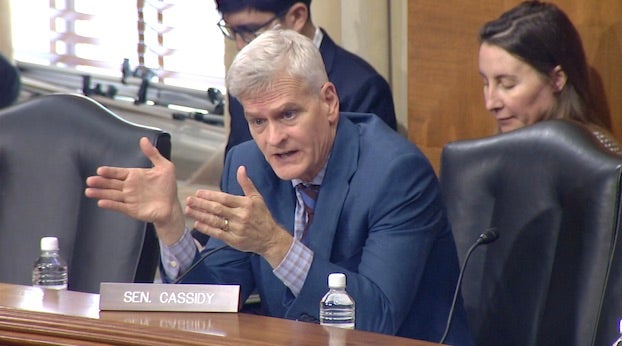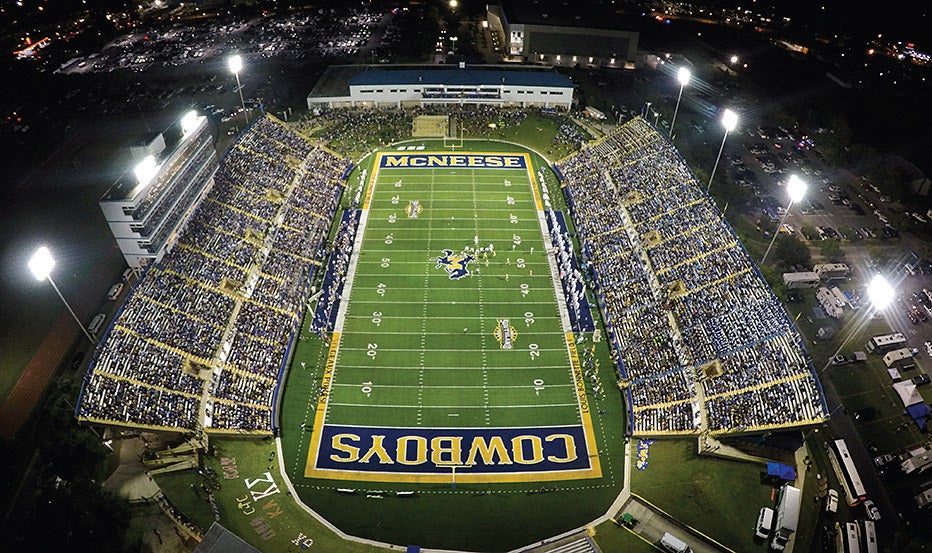Session extremely unproductive
Published 1:13 pm Thursday, June 8, 2017
The Legislature at its 2017 fiscal session, with one major exception, may have chalked up a record number of failures. Completion of a 2017-18 state budget needed by July 1 is still hanging in the balance, but Senate and House leaders seem confident they can pull that one off before today’s 6 p.m. adjournment.
Reform of the state’s criminal justice system wasn’t exactly what a task force recommended. However, significant gains were made in trying to improve Louisiana’s reputation for having the highest incarceration rate in the nation.
Trending
Democratic Gov. John Bel Edwards was a major proponent of the reform effort, and that makes the changes even more surprising. The hard-nosed Republican leadership in the state House sabotaged pretty much everything else Edwards wanted to do.
The governor didn’t take a stand on a proposed 17-cent-per-gallon increase in the state’s gasoline tax, but it failed to even come up for a vote. Considering the deplorable condition of so many roads and bridges in the state, that may have been the Legislature’s major failure.
Baton Rouge desperately needs another bridge over the Mississippi River since daily traffic nightmares at the Interstate 10 bridge have become a national disgrace. The long delays for motorists just traveling through Louisiana leaves a horrible taste in the mouths of all who are just trying to get to somewhere else.
Lake Charles is almost as desperate. Many area motorists refuse to use the Interstate 10 bridge over the Calcasieu River even though the state Department of Transportation and Development insists it’s safe.
New bridges at both cities will cost a billion dollars each and take almost a decade to build, so many of us may not see either one of them. They are just a small part of a $16 billion backlog of major road and bridge projects on top of a $13 billion road and bridge maintenance and construction backlog.
The major goal of this session was to reform the state’s budget and tax systems, a promise lawmakers made last year. They never came close.
Trending
Legislators raised $1.3 billion in temporary taxes last year with another challenge to raise permanent revenues this year to plug the gap when those taxes go off the books on July 1, 2018. A handful of dedicated legislators came up with plans designed to reform the tax structure and raise those necessary funds. It didn’t happen, either.
The state gives away nearly $7 billion in tax breaks every year, money that is desperately needed to fund essential state services. Another of the session’s failures was the ease at which legislators approved even more tax breaks of all kinds. They also refused to let voters take a serious look at whether they want to continue dedicating billions of dollars to numerous special funds.
Republican leaders adamantly refuse to consider changes to the state’s income tax system that grows with the economy and to reform corporate taxes. They don’t want to offend those taxpayers who contribute to their political campaigns.
Meanwhile, they have no hesitation in increasing sales taxes that hit low-income citizens the hardest. They also rejected bills aimed at reforming the sales tax system.
Martin Audiffred of Lafayette, a reader of The Advocate of Acadiana, said in a letter to the editor legislative sessions are unproductive.
“We have major issues in Louisiana: medical care, education, employment and roads, just to list a few,” Audiffred said. “However, the Legislature is not making any progress on solutions.
“… The only answer I can think of is to completely replace the legislators and select a group that understands our needs, works together and not be totally consumed about being re-elected or voting along party lines…”
Finally, let’s take a look at the common complaint that the state spends too much money and doesn’t need higher taxes.
In fiscal year 2015-16, for example, the state collected $10.4 billion from taxes, fees and licenses, but $2.5 billion of that went to dedicated funds. Legislators just had $7.9 billion to spend, but another $3.7 billion of that is dedicated to the Minimum Foundation Program (MFP) that funds K-12 education.
The bottom line is lawmakers only have discretion over how to spend about $4 billion annually. It doesn’t come close to meeting the needs of Louisiana citizens.
Federal funds make up the largest share of the state’s $29 billion budget for the fiscal year starting July 1. The state qualifies for that money because nearly half the population in Louisiana doesn’t make enough annually to save or do anything outside paying for life’s necessities.
Too many legislators — and citizens — refuse to accept the fact Louisiana has a high poverty rate. I thought about that recently when Rep. Frank Hoffmann, R-West Monroe, quoted some scripture before he prayed to open one day’s session. I wondered whether his colleagues who insist the state spends too much thought seriously about that scripture from Matthew 25:40. Here it is:
“The King will reply, ‘Truly I tell you, whatever you did for one of the least of these brothers and sisters of mine, you did for me.’ ”
Louisiana State Capital





